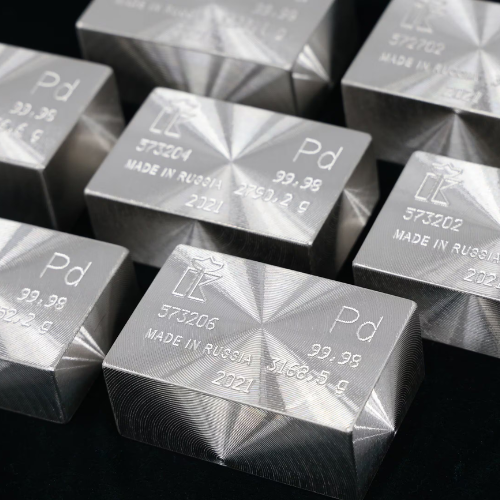The United States is urging its allies in the Group of Seven (G-7) to consider a new round of sanctions against Russia. This time, the focus is on two important metals: palladium and titanium. These materials play a huge role in the production of items like cars, airplanes, and even medical devices. By targeting these metals, the US hopes to hurt Russia’s economy, but it could also have a big impact on global markets.
The US government brought up this idea during a meeting with G-7 finance ministers. These officials were in Washington, D.C., for talks related to the annual meetings of the International Monetary Fund and the World Bank. Although the US has already banned Russian titanium, it now wants other major economies to follow suit and to consider also sanctioning palladium. However, not everyone is on board yet.
Why Palladium and Titanium Matter
Palladium and titanium are not just any ordinary materials. Palladium is a key ingredient used in the manufacturing of catalytic converters, which help make cars less polluting. It’s also essential for making semiconductors, the chips found in electronic devices like phones and computers. Russia is a major supplier of palladium, with its company Norilsk Nickel accounting for approximately 40% of the global production. This makes it difficult for countries to find alternative sources quickly if they choose to sanction Russian palladium.
Titanium is equally important, especially for the aviation industry. Airplane manufacturers, such as Airbus, depend on this strong and lightweight metal for building aircraft parts. It is also used in medical devices, like implants. Russia is a major exporter of titanium, and European companies rely heavily on it to keep production going.
US Proposal and Europe’s Concerns
The US believes that sanctioning these key metals could further weaken Russia’s ability to fund its ongoing war in Ukraine. Since Russia’s invasion in 2022, Western nations have imposed a wide range of sanctions, including restrictions on Russian oil, gas, and other key exports. However, the US feels that more needs to be done to cut off Russia’s access to money and resources.
But this latest proposal has not been met with full support from Europe. Some European countries, like Germany, France, and Italy, are hesitant to target Russian palladium and titanium. These metals are critical for their industries, and a sudden shortage could disrupt their economies. For example, Europe’s aviation industry, particularly Airbus, relies heavily on Russian titanium for manufacturing planes. If supplies are cut off, it could lead to production delays, rising prices, and possible job losses.
North Korea Gets Nuclear Help from Russia in Exchange for Soldiers
Moreover, the European Union (EU) as a whole would need to agree on these sanctions, and getting all 27 member countries to support the idea could be a challenge. Many of these countries have been hesitant to sanction metals such as palladium and titanium in the past due to their heavy reliance on them.
Global Impact of Sanctions
Imposing sanctions on Russian palladium and titanium would not only affect Russia but could also have widespread consequences on the global market. In December 2022, rumors that palladium might be sanctioned caused its price to shoot up by as much as 12%. This highlights how responsive the market can be to fluctuations in the supply of this important metal.
One of the major challenges with imposing such sanctions is finding alternative suppliers. Russia’s control over the palladium market means that there are few other options for countries to turn to if Russian supplies are cut off. This makes sanctions a risky move, especially for industries that depend on a steady flow of these metals to keep their operations running smoothly.
Earlier this year, the US and the UK imposed restrictions on other Russian metals, including aluminum, copper, and nickel. This led to a spike in prices for these commodities, causing disruptions in global markets. If palladium and titanium are added to this list, it could cause further turmoil.
Russia, too, has made moves to counter these sanctions. In September, Russian President Vladimir Putin suggested that his country might limit exports of certain metals, including nickel, titanium, and uranium. He hinted that Russia would take such action to retaliate against Western sanctions. Putin’s government has been careful to ensure that any export cuts wouldn’t hurt Russia itself, but it could drive up prices and make life harder for Western companies.


